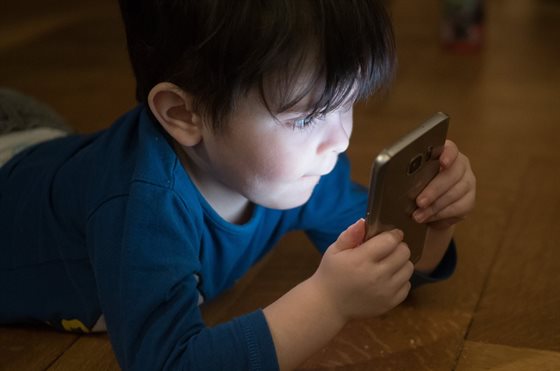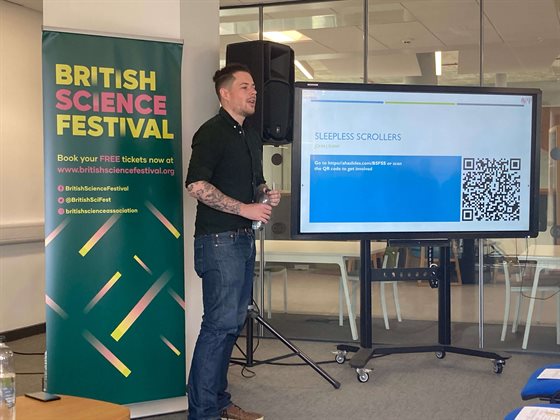A new study by De Montfort University Leicester (DMU) researchers has found that young children are losing around a night’s worth of sleep each week staying up to use social media.
And the research, led by Psychology lecturer Dr John Shaw, also suggested around 12.5% of 10-year-olds were voluntarily waking themselves in the middle of the night to check notifications.

Talking at this week’s British Science Festival, which is being held in Leicester, hosted by DMU as lead partner with the British Science Association, Dr Shaw said his team had questioned 60 children, all aged ten, from schools around the city.
Between them, they got an average of 8.7 hours sleep each night, less than the recommended nine to 11 hours for their age group. Over a week, that meant they were losing an average of one night’s sleep a week.
Nearly 70% of the group said they used social media for more than four hours a day, with two-thirds saying they were using it in the hours before bedtime.
Dr Shaw said: “Primary school children should be getting nine to 11 hours per night. Even if you get just one hour less, it’s the equivalent of one night’s sleep lost per week. So, it does add up.
“The fear of missing out, which is driven by social media, is directly affecting their sleep. They want to know what their friends are doing, and if you’re not online when something is happening, it means you’re not taking part in it.
“And it can be a feedback loop. If you are anxious you are more likely to be on social media, you are more anxious as a result of that. And you’re looking at something, that's stimulating and delaying sleep.”
Dr Shaw discussed the findings – which are currently under peer review – during a session at the British Science Festival.

The session started with Dr Shaw conducting a quick audience survey, asking them to answer a series of questions on social media use and sleep behaviour. Many of these questions required those participating to judge how many young people were registered social media users and which platforms they most preferred.
Using a combination of global statistics and the audience’s answers, Dr Shaw then began to sketch out the scale of social media’s dominance across the world, with around 4.64 billion people using social media platforms worldwide, or around 58% of the planet’s population.
He then looked at how social media users curate a positive – and often misleading - image of their lives, which inspired feelings of inferiority and a Fear of Missing Out (FOMO) in consumers.
He then looked at the importance of sleep in brain and body development and maintenance and discussed the findings, which were gathered with PhD student Sorcha Newby, concluding with some tips to improve sleep and reduce social media use.
He said: “It’s important to establish sleep routines. I get off my phone an hour before bedtime. If I do have to go on it, I’ve got a blue-light filter.”
Posted on Friday 16 September 2022